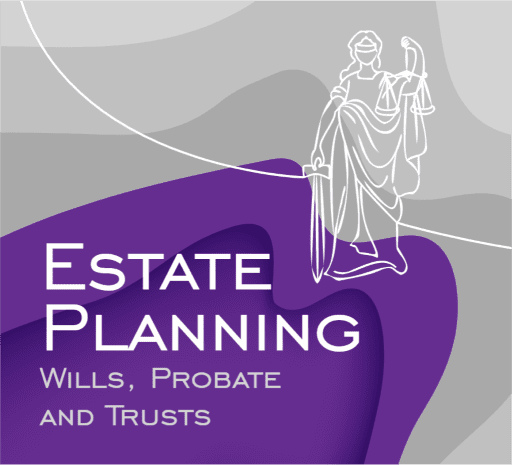Discretionary trusts, like enigmatic chameleons, occupy a peculiar space in the realm of estate planning. Their allure lies in their flexibility, but their shadow conceals a host of complexities and potential pitfalls. In this article, we dissect the controversy surrounding discretionary trusts, focusing on their use, risks, and their curious dance with inheritance tax.
The Basics: What Is a Discretionary Trust?
A discretionary trust is akin to a literary masterpiece with multiple protagonists. The settlor (the creator of the trust) places assets into the trust, and the trustees wield absolute discretion over how to distribute those assets among beneficiaries. Unlike a fixed-interest trust, where beneficiaries have a guaranteed slice of the pie, discretionary trusts keep everyone guessing. The trustees hold the strings, and the beneficiaries dance to their whims.
The Risks: A Precarious Balancing Act
1. Uncertainty and Lack of Control
– Beneficiaries in Limbo: In a discretionary trust, beneficiaries lack a guaranteed right to assets or money. Instead, they cling to hope, like sailors lost at sea, waiting for the trustees’ benevolence.
– Trustees as Puppeteers: Trustees, with their discretionary powers, can be capricious. They might favour one beneficiary over another, leaving family dynamics in disarray.
2. Inheritance Tax Quandary
– The Chargeable Lifetime Transfer: When assets enter a discretionary trust, they trigger a “chargeable lifetime transfer.” If the settlor exceeds the £325,000 nil rate band over a seven-year period, a 20% tax charge awaits on the excess².
– The Residence Nil Rate Band (RNRB) Conundrum: Here’s where the plot thickens. Discretionary trusts, despite their allure, don’t play nice with the RNRB. This band allows homeowners to pass on their primary residence without incurring inheritance tax. Alas, discretionary trusts are the black sheep. Assets within them don’t qualify for the RNRB, leading to potential tax woes.
The Illusion of Tax Savings
Discretionary trusts often masquerade as tax-saving wizards, but the truth is more nuanced. Placing assets in these trusts might initially seem like a clever move, but beware the hidden costs. The loss of the RNRB can tip the scales unfavourably. Imagine a grand chessboard where the RNRB is your queen, and the discretionary trust is a cunning pawn. Sacrificing the queen might win you a few moves, but ultimately, it jeopardizes your endgame.
Conclusion: A Tightrope Walk
Discretionary trusts are like tightropes suspended over a chasm. They offer flexibility, but at what price? The risks loom large, and the tax implications can be treacherous. Seek legal advice before embarking on this journey. Perhaps, in the end, the true inheritance lies not in wealth but in wisdom.
So, dear reader, as you ponder the twilight of your legacy, remember this: Discretion is a double-edged sword, and the trustees hold the hilt. Choose wisely.
Seeking Legal Advice
Seeking legal advice is crucial when considering the establishment or management of a discretionary trust due to its inherent complexities and potential implications. A qualified legal professional specialising in estate planning and trusts can provide personalised guidance tailored to your specific circumstances and objectives. Here are some reasons why seeking legal advice is essential:
1. Understanding Legal Implications: We can explain the legal framework surrounding discretionary trusts, including the rights and obligations of trustees and beneficiaries, as well as the potential tax implications.
2. Tailored Advice: Every individual’s situation is unique, and what works for one person may not be suitable for another. We can assess your financial situation, family dynamics, and long-term goals to offer tailored advice that aligns with your objectives.
3. Navigating Complex Laws: Estate planning involves intricate legal considerations, especially regarding taxation and inheritance laws. We can navigate these complexities and ensure compliance with relevant regulations.
4. Risk Management: Discretionary trusts come with inherent risks, such as tax implications and potential disputes among beneficiaries. We can help you identify and mitigate these risks to protect your interests and those of your beneficiaries.
5. Maximising Benefits: By seeking legal advice, you can explore strategies to maximise the benefits of a discretionary trust while minimising potential drawbacks. This may involve optimising tax efficiency, preserving wealth for future generations, and maintaining family harmony.
6. Documentation and Formalities: Establishing a discretionary trust requires thorough documentation and adherence to legal formalities. We can draft the necessary trust deeds, ensure compliance with legal requirements, and assist with ongoing administration.
In conclusion, consulting with one of our experienced Solicitors in our Wills, Trusts and Probate department about estate planning and trusts is essential when considering the use of a discretionary trust. Their expertise can provide clarity, mitigate risks, and help you make informed decisions that align with your long-term objectives and priorities.
Reach out to us today at the following numbers to connect with a member of our team:
• Luton, dial +441582 383 888.
• London, dial +442034 393 888.
• St Albans, dial +441727 519 888.
Alternatively, if you’re accessing this information outside our business hours (9am to 5.30pm Monday to Friday, excluding bank holidays) or prefer to put your request in writing, please use our contact form. We’ll promptly respond within 1 working day.
Other Related Blogs




